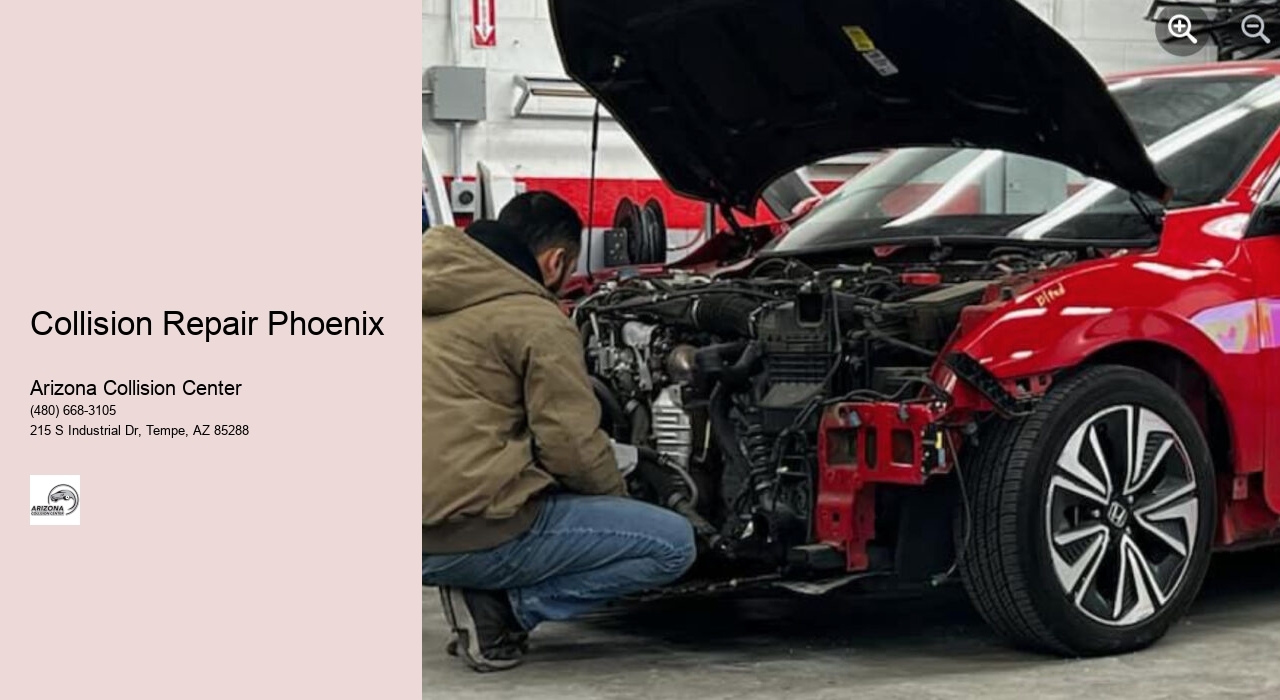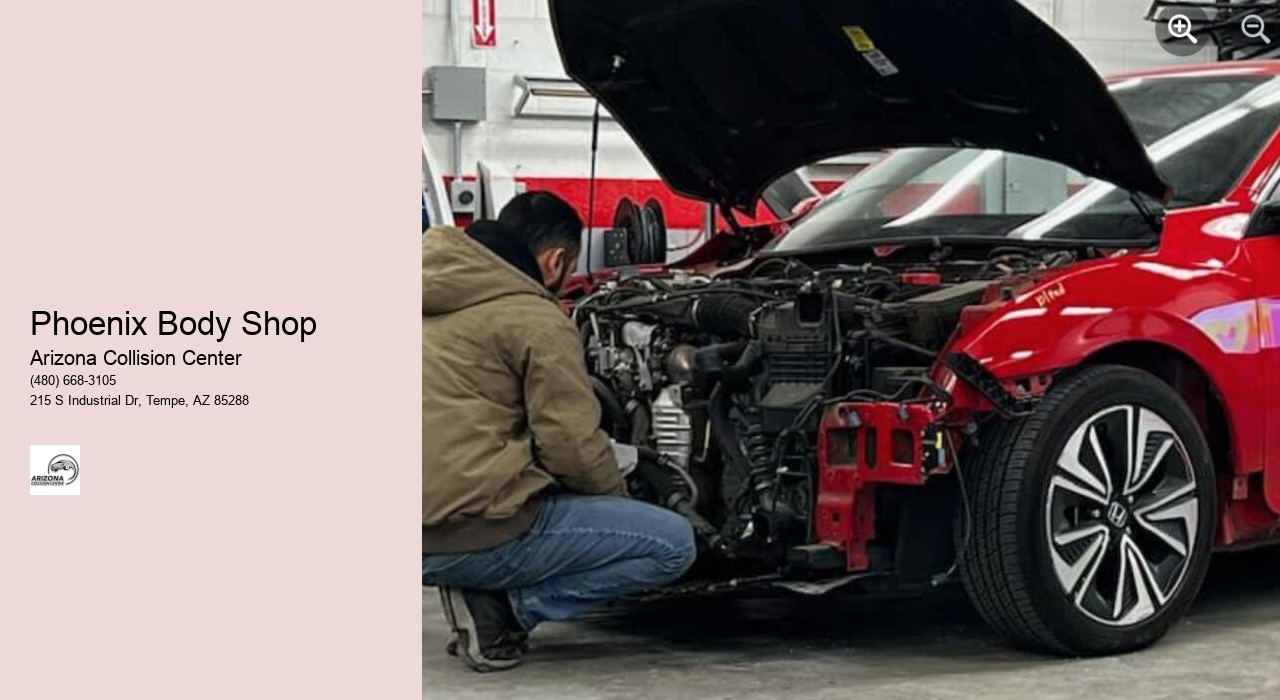

Located in Tempe, Arizona Collision Center is a full-service collision and body shop dedicated to quality craftsmanship. Our facility is staffed with experienced, certified technicians who focus on meticulous attention to detail. If your vehicle has been involved in an accident and needs reliable collision repair or body work, we’re here to help. We’re a preferred partner with all major insurance companies and will work to ensure you get the best settlement from your carrier. We assist with your claim process and use only brand new parts from the manufacturer. Our services also include custom auto body work and paint jobs.
The structural integrity of a vehicle plays a crucial role in ensuring the safety of its occupants. When an automobile is involved in a collision, the auto body absorbs and distributes the energy from the impact to minimize injury to passengers. Therefore, repairs that restore this aspect of the vehicle are not just about aesthetics but are paramount in maintaining the car's original safety features.
The quality of auto body repairs and materials used can significantly affect a vehicle's safety. High-quality repairs that utilize materials equivalent to or exceeding manufacturer specifications ensure that a vehicle can withstand future impacts as it was designed to do. Inferior repairs using substandard parts may compromise vehicle safety, leading to increased risk during subsequent accidents.
Crashworthiness is a term used to describe how well a vehicle protects its occupants during a crash. After an accident, restoring crashworthiness is imperative for ongoing safety on the road. This includes repairing crumple zones—areas designed to deform and absorb energy in an impact—along with other structural elements so they perform correctly in future collisions.
A car's alignment affects its handling and stability, which are vital for avoiding accidents. Precision is required when making structural repairs to ensure proper alignment is maintained; otherwise, even minor misalignments can lead to unpredictable car behavior under stress, thereby increasing accident risks.
In many modern vehicles, airbags are part of an integrated safety system working together with the auto body structure. During auto body repairs, care must be taken not only to fix visible damage but also to ensure that all aspects of these systems remain functional or are properly replaced if deployed during an accident.
As automotive technology evolves with advancements like autonomous driving aids and electric vehicles, repair techniques must also adapt. Technicians need ongoing training to understand new materials used in manufacturing such as high-strength steel or aluminum and how they influence repair processes while upholding vehicular safety standards.
To guarantee the integrity of auto body repairs related to vehicle safety, professional certifications provide evidence that technicians have met industry-recognized standards for their workmanship. Vehicle owners should seek out certified repair shops that comply with these standards, ensuring their cars are restored not only in appearance but more importantly in their ability to protect lives on the road.
View Arizona Collision Center - Tempe Body Shop and Col in a full screen map
https://arizonacollisioncenter.com/
| Specialized Services & Locations | |
|---|---|
| Collision Center in Tempe AZ | A dedicated collision repair center in Tempe, AZ, providing comprehensive damage restoration services. |
| Custom Auto Paint Tempe AZ | Auto painting services in Tempe, including custom colors and finishes for vehicle personalization. |
| Body Shops Near Phoenix | Auto body repair shops located near Phoenix offering collision repairs and paint jobs. |
| Collision Repair Phoenix | Collision damage repair services available throughout Phoenix for various vehicle types. |
| Auto Claims Assistance | Support services to help vehicle owners file and manage insurance claims for collision repairs. |
To protect your car during a collision, it's essential to comprehend the dynamics at play. When vehicles collide, energy is transferred between them, affecting each vehicle differently depending on factors such as speed, size, and angle of impact. Knowledge about how these forces interact can guide you in taking steps to mitigate damage. For example, maintaining a safe distance from other cars and being aware of your surroundings can help you react quickly to avoid head-on or high-impact angles.
Regular maintenance of your vehicle’s safety features is crucial for protection during a collision. Ensure that systems like brakes and airbags are functioning correctly by adhering to the manufacturer's service schedule. Keep tires properly inflated and replace them when tread wear indicators show they're worn out, as good traction can make a significant difference when trying to avoid an accident.
Defensive driving goes a long way in preventing collisions or reducing their severity. This includes being vigilant about road conditions, weather changes, and traffic patterns. Avoid distractions such as mobile devices or anything that takes your attention off the road. Anticipate potential hazards and keep an escape route in mind should you need to quickly change lanes or adjust speed.
The way you load your car affects its handling during an emergency maneuver. Heavy items should be placed low and towards the center of the vehicle to keep the center of gravity low and reduce the risk of rollovers. Secure loose objects since they can become projectiles in a crash, causing additional harm to passengers or further damage to the interior of the car.
Collisions don’t only occur while driving; parked cars are also at risk from passing traffic or careless drivers in parking lots. Whenever possible park in well-lit areas away from heavy traffic flow and ensure that your vehicle is visible to others by using parking lights if necessary. Utilize defensive parking strategies such as reversing into spaces so that it's easier to drive away forwards which gives better control and visibility.
Modern vehicles now come equipped with advanced safety technologies designed to prevent collisions or lessen their impact. Features such as forward-collision warning (FCW), automatic emergency braking (AEB), lane departure warnings (LDW), blind-spot detection systems (BSD), and adaptive cruise control (ACC) significantly improve safety on the road. Consider investing in a vehicle with these technologies or upgrading your current car if possible; it could make all the difference when an unexpected situation arises on the road.

Yes, many shops provide warranties on parts and labor to ensure quality and customer satisfaction.
Costs depend on damage extent, parts needed, and labor, ranging from hundreds to thousands of dollars.
Duration varies based on damage severity but typically ranges from a few days to a few weeks.
Often, yes, if the repair is due to an accident covered under your policy; confirm with your insurer.